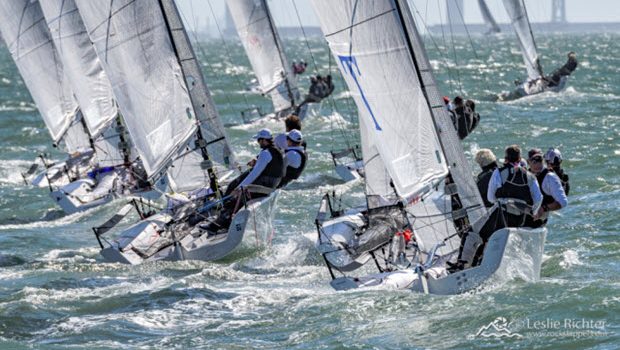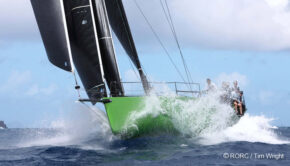The State of Classification
Published on June 12th, 2018
by Gary Jobson, Sailing World
I recently came across a book I was given for my 10th birthday 58 years ago, Successful Yacht Racing by C. Stanley Ogilvy (W.W. Norton & Co., 1951). Ogilvy was an accomplished Star boat sailor, a Ph.D. mathematics professor and a prolific sailing writer.
In his book, he wrote, “Aside from winning a token prize [for winning a race] there is no material reward for excellence. No professional managers wait on the dock, anxious to sign up the day’s winners on their teams. No scouts cluster around waving contracts. The lack of tangible assets connected with winning is the best thing that could have happened to the sport. It means there is no place for the chiseler afloat. In any other kind of race, referees and officials swarm over the course to see that nobody fouls out. In yachting there are no referees.”
All these years later, the sport of sailing has changed dramatically. Professional sailors are ubiquitous, as are umpires and judges. Trying to ascertain who is actually a professional has been a work in progress. If sailing is to thrive in this new environment, defining the difference between professional and amateur is essential. If we don’t do this properly, too many amateurs will fade from racing.
Paying for racing-crew services and individual coaching was virtually nonexistent between the end of World War II and the early 1990s. Over the past 20 years, however, we’ve seen far more pros out on the water. In my town of Annapolis, Maryland, some owners are even paying for experts to crew in Wednesday-night races.
One can argue the trend has gone too far when professionalism reaches weeknight club racing, and I’ve heard from many owners who grew tired of writing checks and eventually left the sport. This might be the unintended consequence of relying on professionals, as Ogilvy writes, for “the reward of excellence.”
Our formal system for classifying sailors as professional or amateur has been in place for more than 25 years. The need to define individuals who race as a profession is important as regatta organizers and classes try to accommodate both. The classification system was originally put in place by US Sailing, but oversight migrated to World Sailing in 1997. Consequently, the definition of a professional sailor, and the process for making that determination, also has been evolving, but there is still not a perfect application. – Full report









 We’ll keep your information safe.
We’ll keep your information safe.